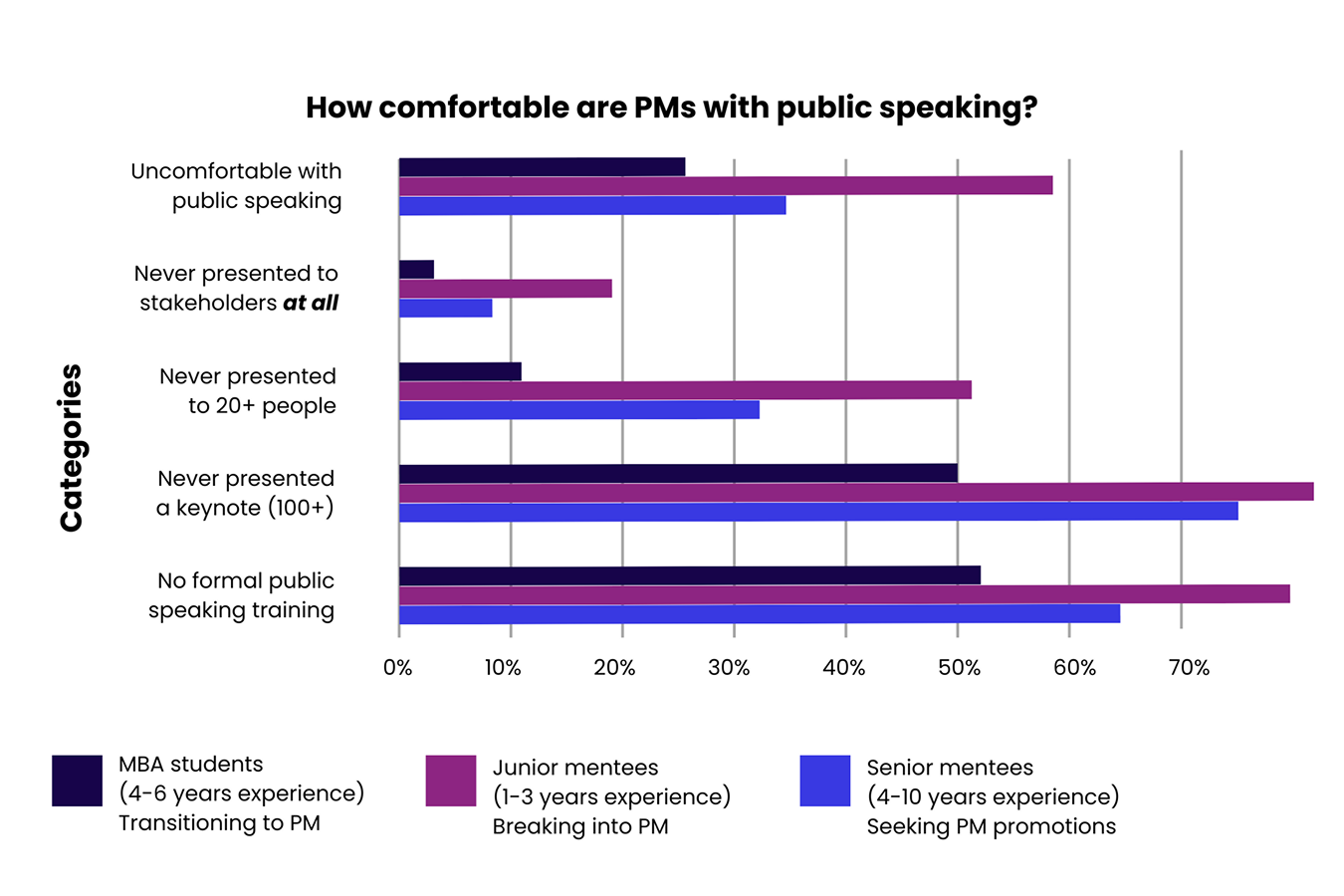How much is a product manager worth? It’s been about three years since Mind the Product looked at product managers’ remuneration, and an awful lot has happened in the world since then.
There’s been a global pandemic, major conflicts and more, and a lot of economic uncertainty. We’ve seen generative AI start to have an impact, recruitment freezes and layoffs from many tech companies, and changing attitudes of investors which have affected access to capital.
Equally, Product is now a more established discipline. More organisations want to be product-led and are looking to their Product function to give them a competitive edge. A McKinsey report published at the start of 2023 highlights the growing importance of product management for businesses, saying: “Companies across industries increasingly view software not just as an enabler of business but also a source of distinction. As they increase their investments in software development, the need for ever-stronger product management capabilities grows. And yet our research shows that roughly three-quarters of companies’ product management functions are not yet where they need to be to unlock the full value of their software investments.”
The impact on hiring and salary trends
What’s been the impact on product manager hiring trends and salary landscape? Reliable hard data on this isn’t easy to find. We spoke to Nick Charalambous, CEO of Few&Far, a recruitment agency that has worked with more than 700 tech businesses over the past decade, to get his view. He says salaries for product managers ballooned in late 2021/early 2022, simply because of demand. “Companies were getting funding left, right and centre,” he says, “and that naturally pushed up salaries.”
Salaries haven’t dipped much since then, he says, even though the market has become quieter. Job hunters’ salary expectations also haven’t dropped dramatically, even though many of the big tech companies have made sweeping staff cuts, and in Nick’s experience those who have been laid off are quickly snapped up. “Perceptions have been skewed, even from a recruiting perspective, because of how crazy the market went in 2021/22. The people who joined us in 2021 have no idea what recruitment is normally like, because they joined when there was such a huge influx of jobs and everyone was hiring,” he says.
Product managers are better paid in big tech companies than smaller companies, says Nick. You might expect to be paid 10% or 20% more as a basic salary in a big tech business, but once stock options are included this becomes significantly more, “and if they’re a public company that’s essentially liquid cash,” he adds.
Show me the money
It’s not always straightforward to gauge what a competitive salary is. Nick says that, for example, someone who comes out of a big tech business as a senior product manager and goes to a smaller business as a VP or director can expect to be paid upwards of £140,000 plus stock options. But in, say, a Meta or other big tech business, he says, that would be the basic salary and “they'd have bonuses and RSUs (restricted stock units)”, so the total package would be much much more.
There are a few surveys that provide some guidance. Executive search company Erevina published this study into executive remuneration in high-growth businesses last year, and it includes some remuneration numbers for product VP/director level jobs and product C-suite jobs at a range of privately-held companies, investor-backed companies and public companies from FTSE 100 to FTSE Small Cap. Another executive search company, Intelligent People, published a product management salary guide for the UK earlier this year with Marketing Director Laura Richards commenting that they’ve noticed more demand for contract product staff, and fractional product experts, especially fractional (or part-time) CMOs. In the US, Salary.com has published this report on product managers’ base salaries.
Some businesses are transparent about their compensation rates. Wise (formerly Transferwise), for example, publishes career maps that show all the different levels within a Wise team. There are six product job levels at Wise, from associate product manager through to senior product director/ product lead, and the career maps show the salary ranges at each level in different parts of the world along with responsibilities and expectations of what the job will entail. All staff are offered stock options (Wise went public in 2021), and the published salary ranges exclude these stock options.
One standout from these career maps and surveys is the higher rates of pay for product managers in the US. We noted this the last time we looked at product manager remuneration. Then we surmised that it was because product management was a more established discipline in the US, but maybe now there’s a bit more at play.
There’s less employee protection in the US than in Europe, so that's certainly a factor, and product managers in the US are often more technical than their European counterparts. Funding rounds in the US are also much bigger than in Europe – Series A funding of $40 million is commonplace in the US, whereas in the UK, it’s more like £5 to £10 million – so there’s simply more money in the pot with which to pay people.
It’s different in the US
Nick Charalambous thinks there are other differences. His experience is that US product managers are more commercial than their European counterparts. “They’re more like an entrepreneur in residence,” he says. “They're not just building products because the feature is nice or because the customer wants it. They’re asking, ‘Does this solve the customer problem? How do we monetise this? How does this generate revenue and drive us towards the company goals?’.”
Product leader Adam Thomas says that, as you might expect, remuneration tends to be higher on the east and west coasts than elsewhere in the US. He also points to the advent of academic courses on product management as a popular route into the discipline in the US. He says that good product managers are in short supply in the US and thinks that these courses can miss a lot of what makes product managers effective. “People go to a top 15 business school, get an MBA and then they want to become a director of product,” he says. But he feels a product job isn’t suitable as a first role in tech and that people need experience from another business discipline, “with a discrete outcome or output… something they can hang their hat on” before they become product managers. It gives them a frame of reference for decision-making, he says.
Specialisation and transferable skills
What about transferable skills? There used to be a lot of debate about whether product managers would be forever stuck in a certain industry or size of company once they had been there for a while. Today, we can pretty much agree that career opportunities don’t need to be restricted by past experience. Still, there are a few specialist areas – typically highly regulated industries like medicine or financial services – where experience and industry knowledge counts for a lot. And product people don’t tend to move out of B2B into the B2C space, according to Nick Charalambous. “I also don't think many B2C people would be considered for B2B product roles,” he adds, “and payments is one area where you absolutely can specialise.”
Nick adds that he always does a “10-year coaching call” with candidates to help them determine the lifestyle they’re likely to want in another 10 years. He says candidates fall into three distinct types: those who want to take an entrepreneurial route where they build and scale their own business; those who want a career where they remain a permanent employee; and those who want to take a fractional path, where they work for and advise a few different businesses. “Then we look at the key pieces of experience they need to undertake to give them the chance of succeeding at this,” he says. “When you look at that, it is pretty risky to specialise.”
And if all the above sounds positive and wonderfully lucrative, then Adam Thomas sounds a note or two of caution – caution that is backed up by this CNBC report, where product management bags the top spot as the job that most people want to quit, despite the high rates of pay. “It can be a very tough job,” Adam says, “and I don’t know a single product manager who hasn’t experienced burnout. People are definitely being asked to do more with less.”







